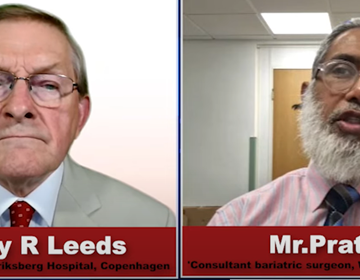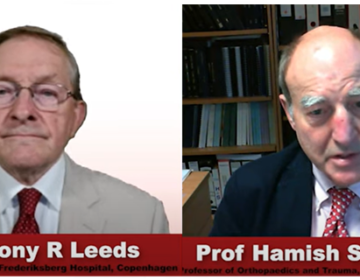How to get rid of diabetes | Health Chart | Episode 1
Prof. Dr Anthony Leeds with Prof. Dr Prof Michael Lean
A dialogue between two world-renowned professors
https://www.youtube.com/watch?v=UlaRgm1l6EE
Diabetes is regarded as one of the world’s major health challenges now affecting some 537 million people but anticipated to affect a total of 783 million by 2045 according to International Diabetes Federation statistics. Diabetes accounts for about 9% of global healthcare costs and this figure is rising in many countries. On a global scale about 75% of people with diabetes live in low and middle income countries where some people may not have access to adequate healthcare.
Type 2 diabetes is linked in many people, but not all, with overweight and obesity. The excess weight that characterizes obesity is another global health challenge. Over 650 million are obese and another 1.3 billion people are overweight and figures are rising. However recent scientific work suggests that in people with diabetes but who are not overweight they may still have too much fat in the wrong places, for example in the liver and pancreas which then cannot work normally.
Many very large scale trials now show that achieving and maintaining some weight loss can reduce the risk of going on to develop diabetes. In those at risk of developing diabetes (see links to online risk calculators below) weight loss is known to be the most important action that people can take to reduce their risk.
Once diabetes has been diagnosed many people fear that they are locked into a life-long diabetes treatment program and medical practice has evolved to accept this as a gradually progressive condition with development of a vast range of medications to treat it as deterioration occurs.
In this interview Professor Lean challenges the generally accepted idea that diabetes cannot be put into remission by describing the evidence from the ‘DiRECT’ diabetes remission trial that was run in Scotland and northern England by teams lead by Prof Roy Taylor in Newcastle and Prof Lean in Glasgow. He shows how with sufficient weight loss people with a recent diagnosis of diabetes had a high chance of remission if they lost enough weight (10-15kg). He described how this was achieved using a specially formulated total diet replacement (TDR) program with support from health care professionals (dietitians and practice nurses) followed by gradual reintroduction of conventional food and a well-managed weight maintenance program afterwards. This amount of weight lost was also linked to a reduction in blood pressure, reduced use of blood pressure medicines and improved quality of life. The ‘DiRECT’ trial was a study on participants who were largely white British and he emphasized the need for studies in other population groups to confirm the effects. The diabetes remission program is currently being rolled out to patients in Scotland and England and the available evidence suggests that this is an effective and acceptable program. Plans are underway to provide this type of diet and lifestyle program in other countries around the world.
Web-links to useful sources of information are given below.
—ooOOoo—
Diabetes and obesity statistics:
Factus Figures
obesity-and-overweight
About Diabetes:
Abou Diabetes
Diabetes remission:
type2-diabetes-remission
Research-spotlight-low-calorie-liquid-diet
Direct clinicaltrial
Publications describing results of DiRECT trial
—ooOOoo—
Diabetes prevention:
The Canadian Diabetes Risk calculator:
The Indian Diabetes risk score ;
UK Type 2 diabetes – know your risk
—ooOOoo—















